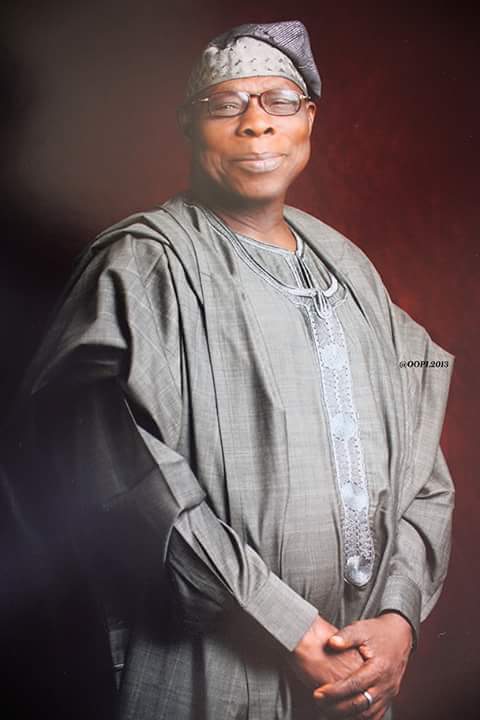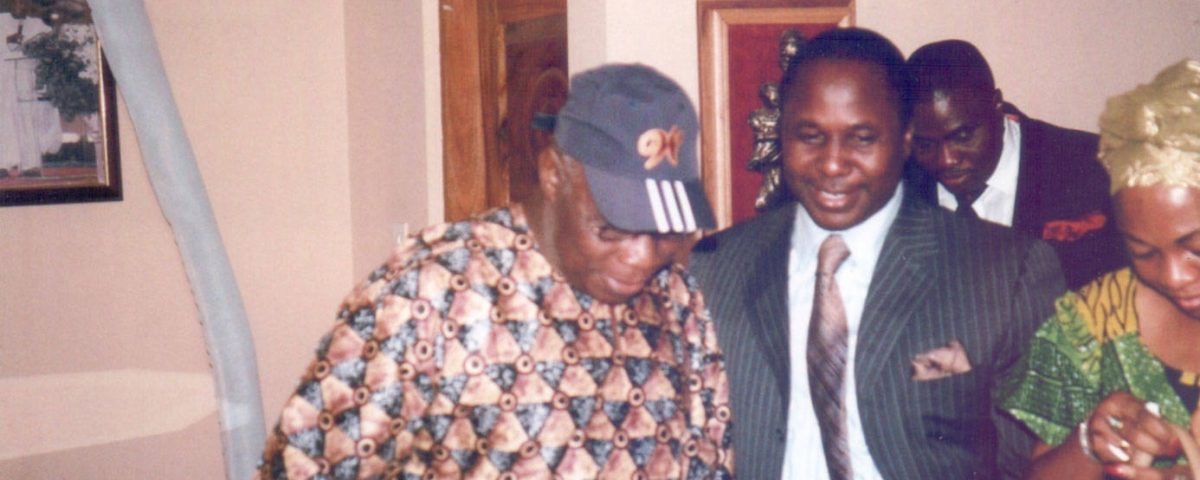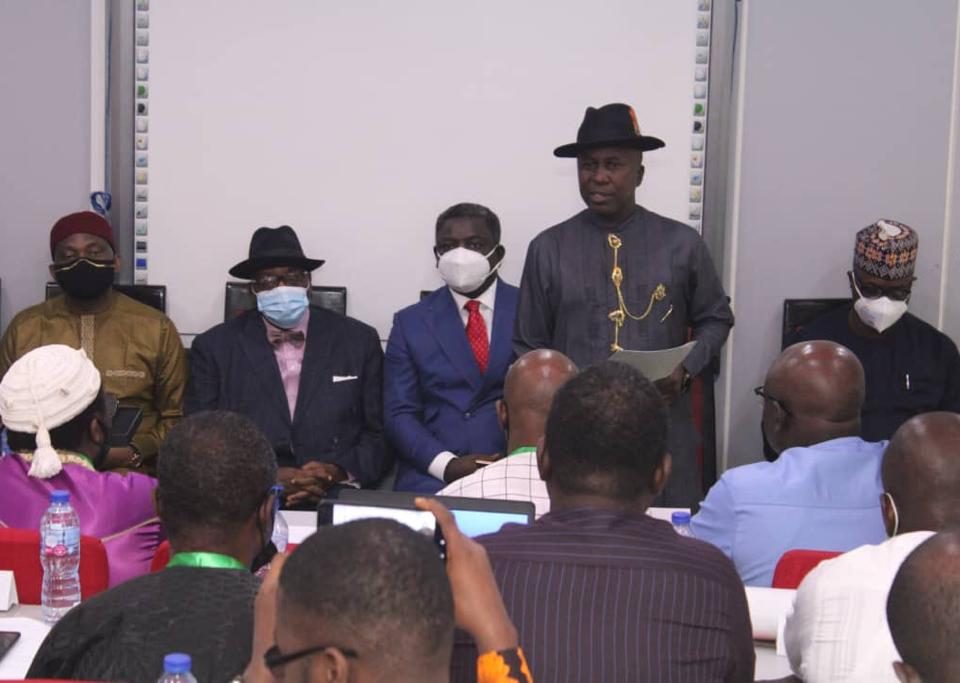
Alamieyeseigha Goes Home 9th April 2016
February 27, 2016
Issues In Handling Niger Delta Avengers
June 16, 2016So far, my expectations have been misplaced. In the last few weeks,
I have deliberately engaged in a great deal of content analysis of major Nigerian newspapers. Each time I pick the papers these days. I seek out the reactions of President Olusegun Obasanjo’s unrepentant critics to the recent debt relief granted Nigeria by the Paris Club of creditors.

The debt write-off was a huge economic and diplomatic breakthrough for the country and I had expected even the most ardent critic of the Obasanjo’s administration to at least, for once, heap praises on the president for the great feat. But rather than speak out to congratulate the administration for the accomplishment with the same fervour with which they had disparaged the President’s “excessive foreign trips” in the past, some of the critics have opted to keep mute while others have dismissed the gesture as mere political gimmick.
But the mere fact that critics of the President’s diplomatic shuttles have been silenced by the development is itself an indication that every Nigerian appreciates the enormous significance of the $18 billion debt noose that was taken off the country’s neck. Finance Minister, Dr. Ngozi Okonjo-Iweala said the $1 billion (132.8 billion) the country channels into debt servicing annually can now be diverted to critical social infrastructure such as roads, water supply, education and health. If the government sticks to its promises, there will be tremendous transformation of the Nigerian economy. Expectedly, more resources will be available to government to fund agriculture, social infrastructure and the foreign exchange market.
The trickle-down effect on the economy will be phenomenal. The expected improvement in infrastructure will surely boost foreign investments, create employment and strengthen the naira. Every Nigerian, sooner or later will be better off and the country itself will be on the path to real development. However, one important fact is that the debt write-off is a great diplomatic mileage which journey began over six years ago. Immediately the Nigerian people gave him their mandate in 1999, the President began the great race to position Nigeria as the number one black nation on earth. Insisting that the country had no reason not to be the leader of Africa, Obasanjo hopped on the plane travelling all over the world with a view to convincing the world that there was a new dawn in Nigeria and that the country should therefore be stripped of its pariah status.
Obasanjo shuttled frequently and extensively to all parts of the world up to the point that Nigerians became deeply irritated that their President was ruling them from the air. Then, there was a deluge of criticism with some Nigerians describing Obasanjo as “a flying President” who is more at home abroad than in Nigeria. Some Nigerians even got to the ridiculous extent of derisively compiling Obasanjo’s numerous trips into a book. But despite the unceasing scathing criticisms, the President kept his focus, intensifying the drive to position his country as the real giant of Africa and a prominent player in world politics.
The result of the President’s effort to make his country a strong voice in world affairs is now there for all to see. No matter what anybody thinks, President Obasanjo has taken Nigeria to another level. The country now has a tremendously good image and is gradually inching its way towards becoming the greatest black nation in the world. Today, because of the admirable leap in its stature occasioned by President Obasanjo’s deft diplomatic shuttles, Nigeria is highly favoured to clinch a permanent seat in the United Nations Security Council. Recently when African leaders converged on Sirte, Libya, it was clear that Nigeria’s international profile has been gradually dwarfing that of all other African countries hitherto believed to be ahead of it in terms of political stability and economic advancement.
In the context with South Africa, Egypt, Kenya, Senegal and Libya who are also in contention for the UN seat, Nigeria’s prospect appears brighter. And that was because President Obasanjo made it appear so. He has met with several African leaders and has been shouting himself hoarse that Nigeria’s democratic credentials have shone brightly.
The President, in his characteristic witty way of doing things, said in Tokyo in April 2005, that the world is made up of the white, yellow, brown and the black people and that Nigeria constitutes 20 percent of the blacks in Africa and should therefore be the automatic choice for the United Nations Security Council seat. Obasanjo has no doubt championed the cause of Africa and fight for Africa’s place in the sun. Nigeria has had 45 years of diplomatic and peacekeeping experience and has the highest troop’s deployment in UN operations at the moment.
Again, since he came to power six years ago, Obasanjo has intervened successfully in political crises in Liberia, Sierra Leone, Congo, Zimbabwe, Cote d’Ivoire, Togo, Sao Tome and Principe, Rwanda and Sudan. In some instances, the President had summoned warring factions to Abuja for the resolution of the crises in their various countries. In the case of Sao Tome and Principe, Obasanjo ensured that the democratic head of the country, which was toppled by the army, was reinstated. Nigeria even risked the goodwill of some Western countries when it gave political asylum to former Liberian President, Mr. Charles Taylor, for the sake of peace and stability in the West African sub-region.
In recent times, the innovative New Partnership for Africa Development, NEPAD, championed by President Obasanjo and President Thabo Mbeki of South Africa, has blazed the trail for the mobilisation of western capital for Africa’s development. The country is able to do this because of its relatively comfortable foreign reserves, which is currently the highest in Africa. Besides, the Nigerian leader has ensured that the country continues to share the expertise of her people with countries in Africa, the Caribbean and the Pacific Islands by sending technical aids to them under the Technical Aid Corps at great cost to the country.
The fact is that President Obasanjo has carved a new niche for Nigeria. The country is now admired and respected by the rest of Africa and indeed the world. Most countries in Africa now look forward to Nigeria for the resolution of their internal conflicts. Even countries in Europe and America are beginning to realise that Nigeria can no longer be ignored in the comity of nations.
To summarise all these is to say that the dividends of the President’s democratic shuttles are now tumbling in. Foreign investments are pouring in and will continue to pour in. The country’s rating in the international community has improved tremendously. Now that more than half of the country’s debt has been written off, Nigeria may as well be on the path of economic recovery. If the country eventually gets the permanent seat in the United Nations Security Council, then that would be a deserved icing on the cake. And it may just be around the corner.
Dr. Azaiki is Secretary to the Bayelsa State Government. This piece was published in The Guardian, July 20, 2005.


